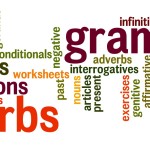Why Speaking Can Be A Bad Language Learning Strategy

"Just keep on talking" has to be one of the most worn-out phrases in the world of language learning.
Can't learn a language? Talk.
Not making enough progress? You're not talking enough. After all, a road to the mount fluency is paved with endless hours of conversation.
"But my progress has really stalled and ... ." MOOOOOOOOOOOOORE, you moron!
Sounds familiar? I bet it does.
If you are one of those people who at some point got stuck at the "intermediate plateau" this article is for you.
Although speaking is without any doubt very effective language learning tool, it's not the optimal solution for every language learner.
What's more, this advice can be actually detrimental to your learning
Let's deconstruct this piece of advice so you understand where the rub lies!
As always, let's start with basics.
Number of words and levels of understanding
Here is the general overview of the number of words and the level of understanding they warrant (for more information read how many words you should know for every language level)
1000 words (A2) | 1000 words allow you to understand about 80% of the language which surrounds you, as long as they are not fancy. |
3000 words (B1/B2) | 3000 words allow you to understand about 95% of most ordinary texts (Hazenberg and Hulstijn, 1996). |
5000 words (B2) | 5000 words allow you to understand about 98% of most ordinary texts (Nation (1990) and Laufer (1997)). Such a vocabulary size warrants also accurate contextual guessing (Coady et al., 1993; Hirsh & Nation, 1992; Laufer, 1997). |
10000 words (C1 / C2) | 10000 words allow you to understand about 99% of most texts (Nation (1990) and Laufer (1997)). |
Depending on a choice of words, you can deduct or add 20% of a given number.
Keep those numbers in mind. We will come back to them soon.
But for now, since nobody like party-poopers. let's concentrate on positive aspects of speaking.
When is it a good idea to speak?
Speaking is certainly a GREAT idea, if not the best one, if you start learning a language.
Before I get to "why", let's look at other options.
Reading? Useless. Let's be honest - what can you read at this point that has any deeper meaning or sense and resonates with you? "Judy likes potatoes. She eats potatoes. Potatoes are sweet and tasty".
Ugh, shoot me in the face already.
Listening? Mostly useless. You don't know enough words anyway to make head nor tail out of the constant stream of speech. "Dfsdfsdfs "I" ........(wall of noise) ..." says" .......... "hide the body".
Speaking? Yes, please! In every possible amount.
Not reading, not listening - speaking is one of the best things you can do at the beginning of your learning.
Why?
It's breath-taking how complicated it is to utter even one correctish sentence. There are so many things to remember! The best thing about speaking is that it helps you integrate ALL of them.
- 1It activates vocabulary.
- 2It starts building your muscle memory.
- 3It helps you understand the relationship between grammar and words.
- 4It activates grammar and automates its use.
And so on.
It can be as simple as uttering short sentences over and over again. You don't need to talk with anyone really. You can just talk to yourself.
What's more. Your sentences don't have to be correct every time. It's enough that your language partner understands what you mean.
Last but not least, the main rule which contributes to the rapid learning is using your knowledge actively.
So it happens that speaking is the pinnacle of active language use.
Of course, you can choose to ignore active learning but I can tell you right now what will happen:
- 1you will succeed after a long time,
- 2your progress will be so slow that you will start backhanding old ladies at bus stops. Finally, you will give up and move on to another language. Inevitably, after some time you will arrive at the same crossroads with your new language.
So do yourself a favor and start talking as quickly as you can. Remember. You don't have to talk to others. You can just start with uttering short sentences under your breath.
Other perks of self-talk include:
When it's a bad idea to "just speak"
Nothing good lasts forever. Speaking has also its expiration date efficiency-wise.
So when does the fun-ride end? Around a B2 mark (i.e. 4000 / 5000 words.).
Why?
There are two very important reasons for that.
1) You are already (quite) fluent grammar-wise
By this level, you should have your basic grammar fluency. You have produced enough sentences to automate dozens of different grammar patterns and constructions. Uttering more sentences won't bring you much closer to your goal of being fully fluent.
At this point, you need to expand your vocabulary more in order to achieve your goal.
2) You keep on repeating the same things over and over
Remember previously mentioned numbers? They will come handy now.
We established that knowing about 5 k words grants us the understanding of about 98% of all the things we hear on a daily basis.
What this number is trying to tell us is this:
If you just talk and don't challenge yourself, you repeat things you already know 95-98% of the time.
Let me rephrase it - out of every 100 words you use only about 2-5 of them can be considered learning.
Even better! Think about like this.
Out of every hour, you only practise for 36 seconds to 3 minutes.
Let's go crazy and say that it is 5 minutes.
How would you react if your buddy told you about a friend of his who is a little bit "special". Jeff works as a car dealer and every day he calls the same 95 people, who already bought a car, to sell them the very same car.
I guess you would imagine that he is the kind of guy who gets his pay in sugar cubes and wears a bib instead of a tie. That's how special he is.
Don't be like Jeff.
Of course, if your goal is to learn just one language or have a lot of time, keep at it.
However, for any other goal, I would suggest you start fixing your learning schedule.
How do I know it applies to me?
There is a simple rule for that.
If you can already spend an hour or two talking without finding blood stains under your armpits and seeing black blobs in the corner of your eyes it means you're not learning anymore.
You're just repeating the same ol' things over and over again and most of your time and effort is wasted.
I am willing to bet that you already know it deep inside. Try to tune your ears to conversations you typically have in your target language. Aren't you using the same phrases all the time?
If yes, you need to step it up and stop wasting time on lessons that don't contribute much to your language development.
The higher your level, the bigger the problem.
It's worth noting that the more advanced you get, the bigger the said problem becomes.
At a C1 level, you know about 99 % of all the words that can be encountered in everyday conversations. Speaking more is clearly not an effective solution here.
Solution - fixing your learning schedule
Before I move on, keep in mind that all the advice in this article aims at improving your learning effectiveness regardless of whether you are learning on your own or by having privates lessons or language exchanges.
By no means am I suggesting that you should cut off your friends and leave them high and dry just because this kind of talking is not the most effective learning option out there.
"Sorry Suzie, this random dude on the internet helped me realize that you're wasting my time. Good riddance and farewell!".
If you are talking to your friends on a daily basis, there is no reason to give it up. You will learn something every day anyway.
Now that we've gotten this hurdle out of the way, let me repeat again - If you want to get out of this gruesome rut and fix your language learning schedule, you need to concentrate on words/phrases you don't know well.
There are a couple of ways to do it, but they all share one feature.
Preparation
"Give me six hours to chop down a tree and I will spend the first four sharpening the axe." - Abraham Lincoln
Making the best use out of your lesson is all about the proper preparation.
As a rule of thumb, I recommend most people at a B2 level or higher to put in 4-5 hours of preparation before each lesson.
Of course, if you learn on your own, feel free to use those techniques whenever your heart desires.
If you use structured lessons, usually there is some subject or article that will be discussed. In that case, always make sure that you discuss it with yourself or your friends in advance.
Here is a great website with over 100 topics and thousands of questions which you might use to test yourself.
Remember - if you catch yourself not knowing some word, always write it down and learn it.
Think about words like "bodkin", "grovel" or "coppice". Most people don't use them that often in their native tongues, let alone in their target language.
That's why you always should have a system in place to master such words. Otherwise, they quickly fall into oblivion.
As always I recommend ANKI as your go-to program for learning new vocab.
While discussing a given subject beforehand is a foolproof method to quickly discover gaps in your knowledge, there is a method that's much quicker - open a dictionary.
After all, there are potentially thousands of words there which you don't know and use. Pick the ones you find useful, learn them and start using them during your next language learning session.
And don't worry too much about using them incorrectly. If it happens, your teacher/language partner will quickly correct your mistake. Not a big deal, right?
Another good idea, although much more time-consuming compared to the previous ones is to simply read a lot about a subject you're going to discuss during your next lesson.
Find 5-10 articles and start slogging through them!
Your brain is wired to use the most efficient neural pathways i.e. the words you already know very well. That's why you need to put conscious effort into avoiding them.
It can be as simple as writing down a couple of new phrases on a piece of paper as a reminder of what you can say instead. That's why Thesaurus is going to be your new best friend.
For example
"I think" = "I believe"
"She cried" = "She was crying her eyes out"
Read more about the word substitution technique - how to increase your vocabulary size considerably.
Why change a subject every 2-3 days? By discussing the same subject for a longer period of time, you will be able to activate your topical vocabulary much better and understand it much deeper.
Final words
Speaking is not the ultimate remedy for all your language problems. While it's a great strategy at the beginning of your language journey, it gets progressively less effective the more advanced you become.
If you hope to keep on progressing fast, you need to start using some strategies for activating less frequent vocabulary. Once you incorporate them into your language learning schedule, you should see a huge difference.
Agree? Disagree? Let me know!
Done reading? Time to learn!
Reading articles online is a great way to expand your knowledge. However, the sad thing is that after barely 1 day, we tend to forget most of the things we have read.
I am on the mission to change it. I have created over 19 flashcards that you can download to truly learn information from this article. It’s enough to download ANKI, and you’re good to go. This way, you will be able to speed up your learning in a more impactful way.















Haha, you’re welcome 🙂 I’m really happy to hear that! I’ll picture that everytime I go to bed 😉
Hmm, I read an article suggesting what’s 3000 words in English requires 9000 words in Japanese for the same level of understanding. But I have nothing more to support this claim – I didn’t bother checking it. All I can say from experience is that it feels like they use more synonyms than we do in our western languages.
Ahh, I see. I missunderstod you. I thought I should use these methods from around A2 level and onwards ^^ Previously when I’ve reached B2 I’ve been satisfied with my level and haven’t bothered studying more 😀 From there on out I only really learn through mimicing the natives.
That;s a disturbing picture! I highly doubt these numbers are correct. Our brains try to use as little energy as possible. Using that many words on a daily basis in a language would seem counterproductive for our brains. The possible discrepancy probably comes from a definition of a word. Although, there is probably some difference. Just not that big.
That’s cool. To be honest, for most people a B2 level is enough! But once again – if somebody would like to push past this level in an efficient manner, I would suggest using the framework I proposed 🙂 Btw subscribed to your channel. WIll be fun watching you do your language mission 🙂
Bartosz, man. You’re absolutely amazing!! This is the reason why you’re the language expert I admire the most. Your content is always incredibly well thought out and rich (and witty), it’s super inspiring to read and it continues to teach me new stuff 🙂
My only comments are that for languages like Japanese and Korean the numbers varry a bit, and when I learned English and German I actually progressed through conversations instead of studying like you suggest. I’m sure your method is vastly faster, but by paying attention to how my native friends creates their sentences and their word choice I kept improving by simply copying them. (Yes, I’m a lazy learner – I’d rather just chat than actively study). Either way, I’ll keep this in mind next time I reach the intermediate plateau 🙂
Jesper, this comment is so nice and flattering that I will print it and rub it against my naked chest at least twice per day for the weeks to come! Thank you! 🙂
The numbers always vary – that’s why I always suggest adding or deducting up to 20%. However, I don’t think that differences are that big as far as I am concerned.
As for your learning, I am pretty sure you did what I am suggesting in the article. You got to at least a B2 level by talking (i.e. active learning). Of course, from that moment on you should probably change your learning style 😉
Oh thank you, this is just what I need! I have plateaued in Spanish for about a year now, wondering what was the matter, because I talked with natives faithfully. I will implement this inmediately! Thank you, thank you.
Pleasure is all mine! Good luck! 🙂